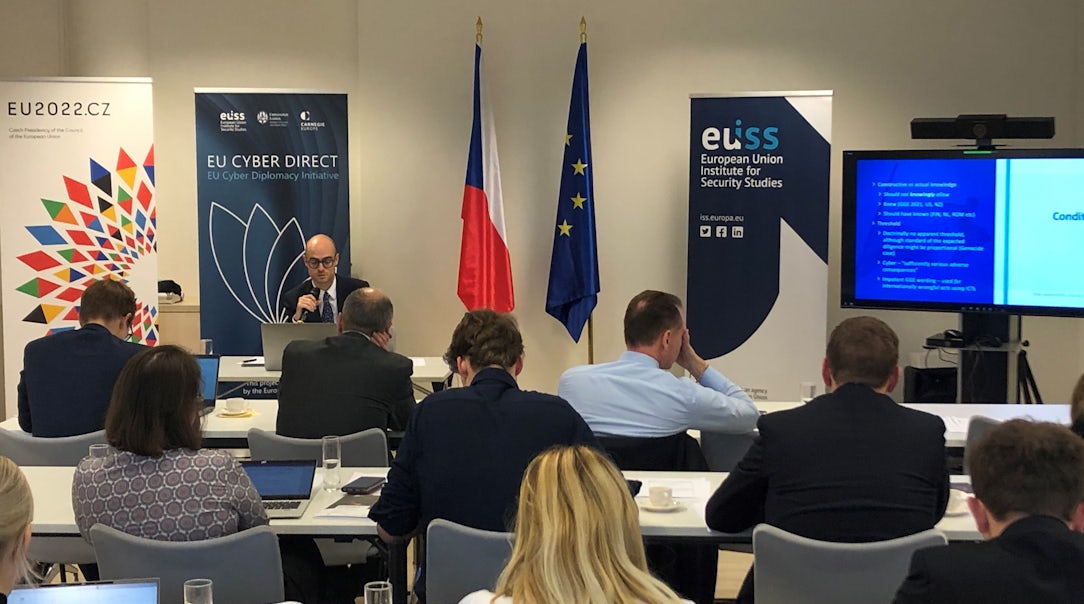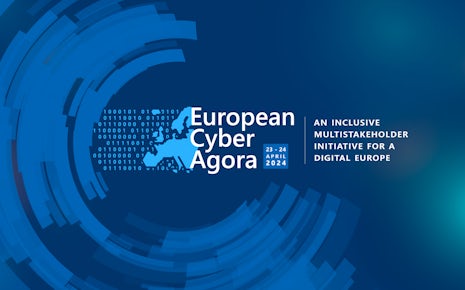The year-on-year increase in significant cyber-attacks, orchestrated by state and non-state actors, has raised many pertinent legal questions about how the traditional rules of international conflict and law apply to cyberspace. To understand how the EU, its member states and other third-party states view the application of international law in the cyber domain, on 25 October 2022 EU Cyber Direct organised a training session for the Horizontal Working Party on Cyber Issues in cooperation with the EU Institute for Security Studies, the Czech Permanent Representation to the EU, and the European External Action Service.
During the training, a panel of legal scholars and practitioners addressed an audience of cyber experts and attachés from EU member states and their permanent representations. The session focussed on three main aspects:
- Sovereignty - with Nicholas Tsagourias, Professor of International Law at the University of Sheffield and the Director of the Sheffield Centre of International and European Law;
- Due diligence - with Andraz Kastelic, Lead Cyber Stability Researcher, Security and Technology Programme at the United Nations Institute for Disarmament Research (UNIDR);
- Use of force - with Marco Roscini, Professor of International Law at the University of Westminster and the Swiss Chair of International Humanitarian Law at the Geneva Academy of International Humanitarian Law and Human Rights.
Panellists specifically dealt with how different states approach the concept of sovereign cyberspace, the violation of sovereignty in cyberspace, the application of the principle of due diligence, and the attribution of cyber attacks.



